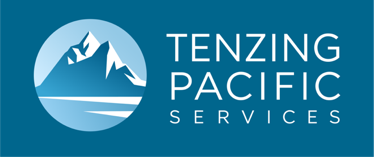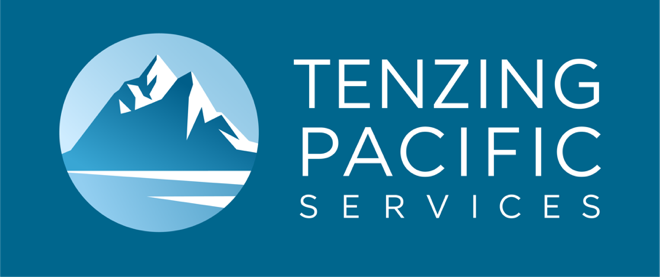-
Posts
1,802 -
Joined
-
Last visited
Content Type
Events
Forums
Downloads
Quizzes
Gallery
Blogs
Everything posted by ASEAN NOW Sales
-
The importance of data protection is becoming increasingly recognized, resulting in the growing data protection laws across the globe. Despite the COVID-19 pandemic postponing Thailand’s initial law on personal data protection since 2019 (and the private sector’s attempt to further delay its implementation for additional two years), the law eventually came into effect at the start of last month on June 1st, 2022. Whether you’re concerned about personal data from an individual or business perspective, our friends at Pacific Prime Thailand are here to tell you what you need to know about the Personal Data Protection Act (PDPA) of 2019. The PDPA safeguards individuals and their personal data Since the General Data Protection Regulation (GDPR) came into full force in 2016, many regions have been called to take similar action - including Thailand’s own variation: the PDPA. The PDPA’s mission is to protect data owners and set guidelines so business and state agencies are legally obligated to get permission from data owners before they collect, process, use, and disclose their personal info. Along with Thailand-based entities, the PDPA extends to overseas data controllers and processors who process the personal data of those in Thailand. “The enforcement of the PDPA on June 1 marks a milestone for privacy protection and data security for customers in Thailand,” said Stephen James Helwig, Total Access Communications’ (DTAC) interim chief corporate affairs officer, in a recent Bangkok Post article. Personal data Any information that can either directly or indirectly identify a person is considered personal data. This includes, but is not limited to, their: ● Name ● Address ● Email address ● Phone number ● ID number Additionally, further protection is given to sensitive personal data under the PDPA, including data related to: ● Health, biometric, and genetic data ● Gender, sexual orientation, and any disabilities ● Race, ethnic origin, and religion ● Political opinions and trade union information Many businesses have been caught off guard According to a Thai Board of Trade and the University of the Thai Chamber of Commerce survey, just 8% of nearly 4,000 businesses surveyed have taken measures to be compliant with the law. Similarly, 31% have yet to even start the compliance process. Businesses that have not prepared for the PDPA must now focus on becoming compliant with the new law to avoid potential non-compliance lawsuits. By violating the PDPA, businesses could face fines of up to THB ฿5 million or imprisonment for up to one year. But there is a transitional period Fortunately for those who are unprepared, the government will relax the enforcement of penalties during the initial year of implementation as it is seen as a transitional period. That is, as long as the violators didn’t intend to commit any wrongdoings. Authorities will solely focus on giving warnings to violators and prompting them to comply with the guidelines in the first 12 months. Paiboon Amornpinyokiat, a Personal Data Protection Committee legal subcommittee member, said the main task for the first year is to protect individuals’ right to data protection and increase efforts to improve understanding of the law amongst related parties. He added that the government intends to support the digital economy with the PDPA rather than seek money from fines. What’s more, small and medium-sized enterprises (SMEs) would be spared from having to comply with the PDPA’s practices on processing activities recordings thanks to a subordinate regulation. Looking for expat health insurance in Thailand or other types of health insurance? Pacific Prime is a global health insurance brokerage and employee benefits specialist that is fully compliant with the PDPA and data protection laws globally. With highly-trained advisors and value-added services, Pacific Prime can help you secure the best health insurance in Thailand for your needs and budget. Contact Pacific Prime Thailand for unbiased insurance advice and a tailored plan comparison today!
-
It is important to know what your status is in the eyes of an international health insurer. The consequences can be serious. 1-What are the differences and why A traveller (or tourist) is a person who temporarily travels to a foreign country. The local health insurance of his country of nationality does not cover him abroad, so he needs to buy a travel international medical insurance. Travel insurances are special solutions, adapted to the international, an insurance policy issued in English, the insurer has a team of multilingual advisers, agreements with international hospitals, direct-billing can be arranged, and is able to organize a repatriation to the other side of the world. These insurances are often not expensive for the main following reasons: -it is subscribed for the duration of the stay only. -in the event of a serious medical problem, the insurer repatriates the insured to his country, where the local insurance that he is supposed to have will take over. The international insurer therefore does not bear the risk of having to cover the cost of treatment for a long period (with rare exceptions). -finally, once the insured has repatriated or returned, the insurance policy ends. If the insured wishes to resubscribe, for a new trip, all the medical problems he has had will no longer be covered. -it offers coverage of medical expenses for illness and accident only. Sometimes it only covers emergencies, or even emergency hospitalization. - the maximum coverage is often quite low. An expatriate is a person who lives abroad. He needs health insurance for resident, often called expatriate insurance. There are countless different contracts and insurers. Overall, here is what characterizes them: - the contract is annual and automatically renewable (with exceptions depending on the insurers). The insurer thus undertakes to cover the insured as long as the latter renews his contract each year. The insurer undertakes to cover all medical problems from the subscription of the contract, and knowing that some contracts are lifelong, that is to say without limitation in time. -it is possible to find very broad and very high coverage, including dental, maternity, health check-up. -maximum coverage can reach to several million dollars, to cover the highest hospital costs. -insurers can offer extended services, for example online portal to manage accounts and claims, mobile app, telemedicine, second medical opinion, direct-billing, insurance card, etc. -It is possible to benefit from a much more personalized and quality customer service. 2-What is the problem Most people who go to live abroad have well-defined situations with regard to their status. But some situations are ambiguous. This is the case when a person lives in a foreign country most of the year but retains important ties to their country of origin and travels there regularly. In these circumstances it happens that some people do not consider themselves expatriates. They continue to benefit from their health coverage in their country of nationality and during their stays abroad they are satisfied with travel insurance. This is a risky situation. Example, an expensive hospitalization in the foreign country occurs. The insurer may decide to investigate and find out that the person is, in fact, a resident in the foreign country, not a tourist, therefore not eligible for the travel insurance taken out, and cancels the insurance. I have had several cases over the past 10 years. This situation must be avoided because even if the insured finally manages to demonstrate and convince the insurer that his residence is still in his country of nationality, he will probably have had to advance all medical expenses and manage his repatriation himself before being refunded, eventually. To avoid this situation, I simply recommend choosing expatriate health insurance when the person lives most of the time in a foreign country. Thus, the possibilities of litigation are ruled out and in the event of serious medical problems the insured is better protected. For additional information, a personalized study, quotations and advises, please contact me here: [email protected] Mr. Romain CAMILLO Broker expert in health insurance 14 years in the insurance business. 10 years in Thailand. Master's degree in business law (University) ; Master's degree in international taxation (Business School)
-
- 1
-

-
Thailand is opening up to the world post-COVID-19! From easing travel restrictions to issuing new long-term resident (LTR) visas for ‘high-potential’ foreigners, the country is ramping up efforts to boost its economy. According to the Board of Investment, the LTR visa applications will be open from 1st September 2022. The new program will provide a host of tax and non-tax benefits - making the country a regional hub for living and conducting business for ‘high-potential’ foreigners. Moreover, the new LTR visa program aims to attract one million wealthy or talented foreign expats into the country in the next five years. If you are wondering who is eligible for the new LTR visa and what it offers, our friends at Pacific Prime will get you up to speed on the latest. What are the benefits of the new LTR visa? The new visa program offers many privileges for eligible foreigners that will make a long-term living in Thailand easy and hassle-free. Here is a list of some of the notable benefits: ● Discounted personal tax rates ● Ten years renewable visa ● Digital work permit (permission to work in Thailand) ● Exemption from employing four Thai citizens per foreigner rule ● Fast track service at international airports in Thailand ● Submit a 1-year report to immigration instead of once every 90 days ● Immigration and work permit services will be provided at the same service center Who can apply for Thailand’s new LTR visa and what are the requirements? The new LTR visa will be offered to four different groups of ‘high-potential’ foreigners, namely, Wealthy Global Citizens, Wealthy Pensioners, Work from Thailand Professionals, and Highly-Skilled Professionals. Now, let’s take a closer look at the visa requirements for each group: Wealthy Global Citizen Must own USD $1 million in assets Must show proof of personal income of at least USD $80,000 per year for the last two years Directly invest a minimum of USD $500,000 in Thai government bonds, foreign direct investment, or acquire a property in Thailand Own health insurance with a minimum coverage of USD $50,000 or social security benefits insuring treatment in Thailand or deposit at least USD $100,000 Wealthy Pensioner Fifty years old or above with an annual pension or stable income Must have a personal income of at least USD $80,000 per year at the time of application In case of income less than USD $80,0000 but not less than USD $40,000 per year, applicants must invest at least USD $250,000 in Thai government bonds, foreign direct investment, or acquire a property in Thailand Own health insurance with a minimum coverage of USD $50,000 or social security benefits insuring treatment in Thailand or deposit at least USD $100,000 Work from Thailand Professional Must have a personal income of USD $80,000 per year for the last two years In case of income, less than USD $80,0000 but not less than USD $40,000 per year, applicants must have a Master’s degree or above or own intellectual property, or have secured Series A funding Must be employed by a public company or a private company that is older than three years with a revenue of at least USD $150 million Must have at least 5 years of experience in the relevant field to the current employment. Own health insurance with a minimum coverage of USD $50,000 or social security benefits insuring treatment in Thailand or deposit at least USD $100,000 Highly-Skilled Professional Must have a personal income of USD $80,000 per year for the last two years In case of income less than USD $80,0000 but not less than USD $40,000 per year, applicants must have a master’s degree or above in science and technology or special expertise relevant to the job assignment in Thailand Professionals working for the Thai government have no minimum annual income requirement Must be employed by business entities, higher education institutions, research centers, and specialized training institutions Must have at least five years of experience in the relevant field to the current employment except for applicants working for a Thai government agency or applicants with a Ph.D. and above Own health insurance with a minimum coverage of USD $50,000 or social security benefits insuring treatment in Thailand or deposit at least USD $100,000 Dependents Foreigners eligible for the new LTR visa can bring along their families via dependent visa. Note that only spouses and children under the age of 20 can apply as dependents of an LTR visa holder. However, each LTR holder can only apply for four dependent visas. Secure retirement insurance in Thailand with Pacific Prime Whether you are looking for individual medical or retiree health insurance in Thailand, Pacific Prime can help you find the perfect insurance plan. With over 20 years of experience, their insurance experts will guide you through different insurance plans while keeping your budget and requirements in mind. Contact Pacific Prime Thailand for unbiased insurance advice and a tailored plan comparison today!
-
- 7
-

-

-

Advertorial Saturday Evening Grand BBQ Buffet at Royal Cliff
ASEAN NOW Sales posted a topic in Pattaya
Experience the ultimate international barbecue buffet with an exquisite selection of Thai, Chinese, Italian and Japanese dishes. Savour in imported meats, fresh seafood and other goodies straight from the grill along with a varied dessert menu every last Saturday of the mounth at Larn Thong –Authentic Thai Traditions for THB 1,650 ++ only! from 6.45 - 10.30 pm. (Starts this Saturday 25 June 2022!) * Can use previously bought vouchers from trade shows and other campaigns* For more information or to make reservations, please contact Guest Relations at (+66) 38 250 421 or email [email protected] https://www.royalcliff.com/shop/saturday-evening-grand-bbq-buffet/ -

Advertorial Saturday Evening Grand BBQ Buffet at Royal Cliff
ASEAN NOW Sales posted a topic in Bangkok
Experience the ultimate international barbecue buffet with an exquisite selection of Thai, Chinese, Italian and Japanese dishes. Savour in imported meats, fresh seafood and other goodies straight from the grill along with a varied dessert menu every last Saturday of the mounth at Larn Thong –Authentic Thai Traditions for THB 1,650 ++ only! from 6.45 - 10.30 pm. (Starts this Saturday 25 June 2022!) * Can use previously bought vouchers from trade shows and other campaigns* For more information or to make reservations, please contact Guest Relations at (+66) 38 250 421 or email [email protected] https://www.royalcliff.com/shop/saturday-evening-grand-bbq-buffet/ -
How to protect yourself against the most expensive hospitalizations in Thailand. Too many residents in Thailand are “underinsured”. Being underinsured means that the medical coverage purchased is not sufficient to cover the highest hospital bills. But this is precisely the purpose of health insurance: to protect against the worst. Examples of recent actual Thailand private hospital bills: -45-year-old man, accident in Koh Tao, hospitalization, surgery, sepsis, emergency transport to Bangkok (cost of transport 1.5M THB), intensive care for one month. Total bill = THB 10,000,000 -15-year-old teenager, lung cancer (congenital disease), one year of treatment. Total bill = THB 10,000,000 -45-year-old woman: breast cancer, surgery and chemotherapy. Total bill to date = THB 1,500,000 -66-year-old woman, throat cancer, surgery and chemotherapy. Total bill to date = THB 2,000,000 -55-year-old man, heart problem, heart operation, complications. Total invoice to date THB 7,000,000 Generally, a cancer, including chemotherapy treatment, costs between 5 and 10 million THB. Rarely beyond 10M. Most cancers are diagnosed in people over 55. Accordingly, for a person living in Thailand, here is what good health insurance should provide: -Medical coverage at least greater than THB 10,000,000 per year, especially for those over 55 years old. -Surgery, anesthesia, ICU covered at 100%. Be careful, most low-cost insurance policies have a strong cap on these items. -Cancer covered at 100%, hospitalization and outpatient. -Efficient direct-billing service and medical network: preference should be given to an insurer capable of quickly confirming that it will pay the hospital directly. -Emergency medical transportation. Evacuation is essential because if you are not within ambulance distance of a hospital, the cost of emergency transport is very high, especially if the transport is "medicalized", i.e. say with a medical team and the first aid available on board the vehicle. -Covered private room (because there is sometimes no choice…). A private room in the best hospitals costs THB 10,000 per night… These are just the most important here. There are many other factors that go into the choice of insurance. For additional information, a personalized study, a diagnosis of your current insurance, please contact me here: [email protected] Romain CAMILLO Broker expert in Health insurance – Tenzing Pacific Group.
.png.3b3332cc2256ad0edbc2fe9404feeef0.png.8488ab72b8bb2e508209bfe3211b6e08.png)








